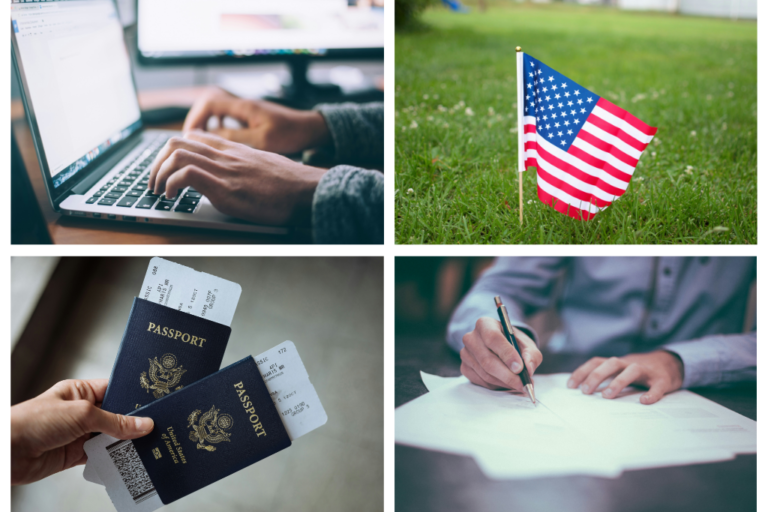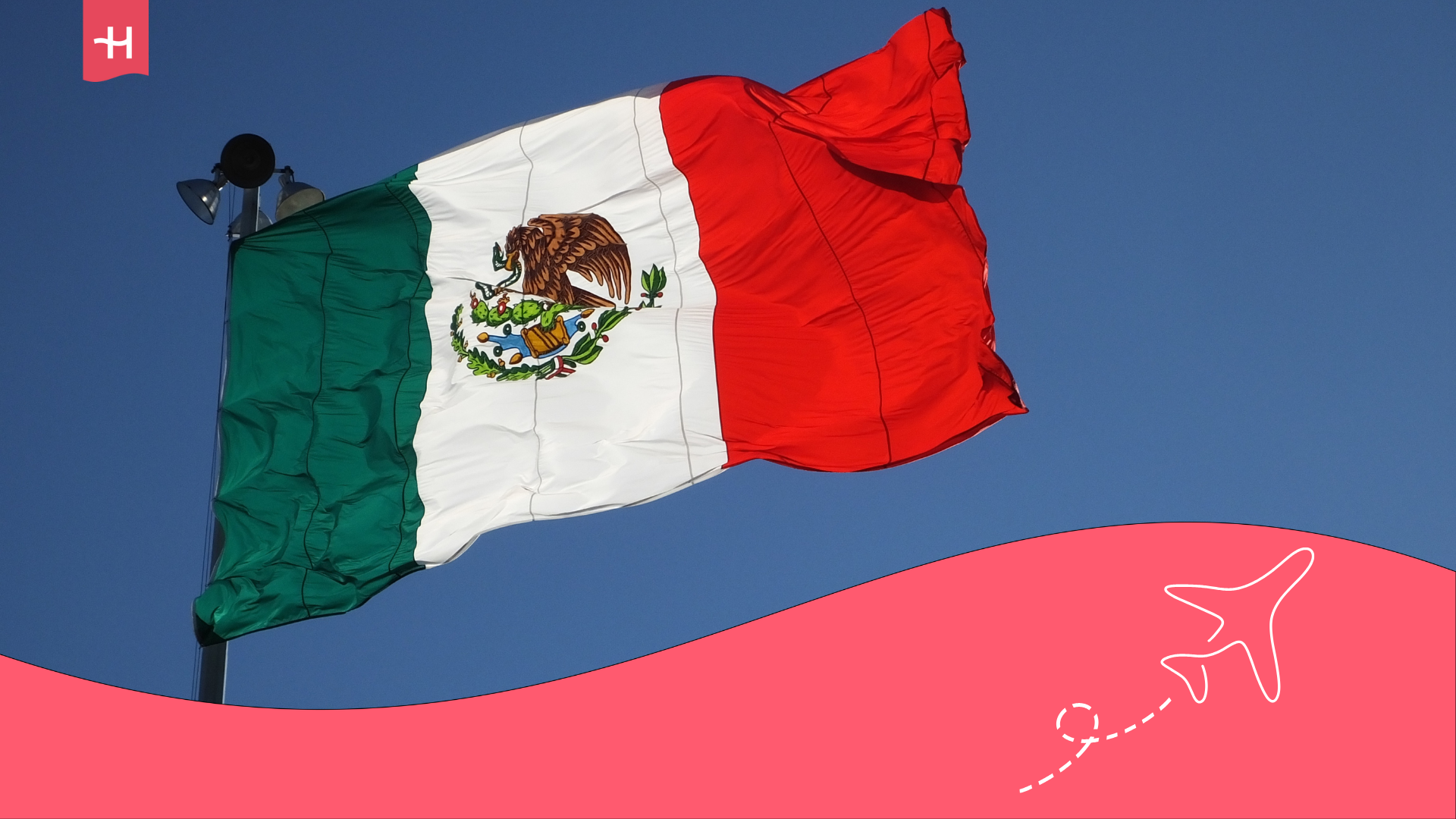What are the requirements to travel to Cuba from the USA?
Learn about all the requirements to travel to Cuba from the USA. Find out about visas, insurance, forms, and more.
Cuba is a destination rich in history, vibrant culture, and breathtaking landscapes, from its iconic beaches to the colorful streets of Havana, a city that makes you feel like you are stepping back in time with its colonial architecture. It is a truly unique place where music, dance, and the warmth of the people create an unmistakable atmosphere. If you are planning to travel to Cuba from the USA, having the right information is key to ensuring a smooth and enjoyable trip.
In this article, we break down all the requirements for traveling to Cuba from the USA, so you can complete all the necessary steps and make the most of your experience. We’ll guide you through the essential documents and the immigration rules for entering the country. On top of that, we’ll share practical tips and other important information to help ensure your visit is both enjoyable and safe. Whether you’re a tourist, student, digital nomad, or planning to work in Cuba, you’ll find the key information you need for your type of trip, making sure you meet all the requirements and can fully enjoy your time on the island.
1. OFAC License
It’s important to keep in mind that under U.S. law, purely tourist travel to Cuba is not allowed. To travel legally to Cuba from the United States, you must fall under one of the 12 categories approved by the Office of Foreign Assets Control (OFAC). These categories include, among others, family visits, religious activities, humanitarian projects, educational exchanges, and professional work.
If you’re planning to visit as a tourist, you need to make sure your trip fits within one of these categories, since purely leisure travel is restricted. For example, if you’re traveling for work, study, or as part of a cultural or educational exchange program, your trip would be allowed under OFAC regulations.
It’s important to keep this license in mind not just for tourists, but also for those traveling as students, digital nomads, or professionals. Each type of traveler has specific permits that must be arranged before heading to Cuba. Make sure you meet OFAC requirements to avoid any issues.

2. U.S. passport
If you are a U.S. citizen, a valid passport is required to travel to Cuba. Make sure your passport is valid for at least six months from your date of entry. This is a standard requirement to enter the country without any issues. Cuban authorities will also check that your passport is in good condition, free of alterations or damage, and meets the minimum validity requirement.
Make sure your passport isn’t close to expiring, or you could run into problems at immigration or face delays. If your passport is nearing its expiration, it’s best to renew it before your trip.
3. Visa to travel to Cuba from the USA
As mentioned earlier, U.S. citizens are not allowed to travel to Cuba purely for tourism due to U.S. legal restrictions. Conventional tourist trips are prohibited, and any travel must fall under one of the 12 categories approved by OFAC. If your travel purpose fits one of these categories, you will need the appropriate visa to support the reason for your visit. Even if your trip is authorized under one of the categories, a visa is still required, as entry to Cuba is not allowed without the proper documentation.
Types of visas according to the purpose of the trip
- Business visa (Visa V): If you’re traveling for business activities such as meetings, conferences, or negotiations that fall within the authorized categories.
- Student visa (Visa VITEM IV): If you plan to study in Cuba, you will need a visa. This applies to both short-term courses and longer academic programs. Make sure you have an acceptance letter from the Cuban educational institution.
- Work visa (Visa VITEM V): If you have a job offer in Cuba, either with a Cuban company or with an employment contract on the island.
- Permanent residence visa (Visa VITEM I): If you intend to reside in Cuba long-term, whether for work, study, or to reunite with your family.
Activities authorized by OFAC
If you’re planning a trip to Cuba, it’s important that your travel falls under one of the 12 authorized categories, which allow legal entry into the country. The main categories include:
- Family visits
- Religious activities
- Educational and cultural exchanges
- Humanitarian projects
- Professional research
- Support for the Cuban people
- Public performances and cultural events
- Activities of private foundations and educational institutions
- Exchange of information and media productions
- Exports and imports of permitted products between the US and Cuba
- Financial transactions related to the development of private enterprises in Cuba
- Agricultural and environmental projects
Each activity must be supported by the proper documentation and comply with OFAC regulations to ensure your trip is legal under U.S. law. If your travel doesn’t fit into one of these categories, you cannot legally travel to Cuba from the USA.
4. Round-trip airline ticket
If you’re flying to Cuba from the U.S., you’ll need a round-trip ticket. Cuban authorities use it to confirm that you plan to leave the country, and airlines will check it before allowing you to board to ensure you meet immigration requirements.
It’s important to note that you cannot travel to Cuba without a return ticket. Both immigration authorities and airlines will require it to ensure your stay doesn’t exceed the allowed time. This rule applies to all types of travel, so you’ll need a ticket back or to another destination.
5. Medical insurance with coverage in Cuba
When traveling to Cuba from the USA, having valid health insurance is mandatory. Cuban authorities require all visitors to have coverage for potential medical emergencies during their stay. This insurance is a key requirement for entry and must remain valid for the entire duration of your visit.
Many airlines include this insurance in the cost of your ticket, but it’s important to make sure the coverage meets Cuban authorities’ requirements, as not all policies provide the necessary protection.
6. D’Viajeros digital form
To travel to Cuba from any destination, you must complete the D’Viajeros digital form before arriving. This form collects traveler information in advance to streamline both immigration and health procedures. It must be submitted online through the official Cuban government D’Viajeros website at least 48 hours before your arrival. Once completed, you’ll receive a QR code that must be presented at immigration when you enter the country.
Tips for traveling to Cuba
While not mandatory, these tips can help you make the most of your trip and enjoy a variety of activities in Cuba with greater comfort and safety.
Internet connection when traveling to Cuba
One notable option is to purchase a SIM card for tourists from Cubacel, the only local network with mobile service on the island:
- What does it offer? It includes 10 GB of mobile data, unlimited minutes, and SMS, all valid for 30 days.
- Where can you get it? You can purchase it at ETECSA sales offices or at Cubacel points of sale inside airports.
Important: If you are a frequent traveler and want to stay connected without worrying about expensive roaming or looking for a new SIM at every destination, Holafly’s subscription plans are for you. With a single eSIM, enjoy internet in more than 170 countries for a fixed price and no surprises on your bill. Travel without limits and connect easily and securely! 🚀🌍

Travel insurance for Cuba
When traveling to Cuba from the United States, it’s highly recommended to have travel insurance. While not required by law, having proper coverage can give you peace of mind during your stay. A good travel insurance plan can protect you against unexpected events, such as lost luggage, flight cancellations, accommodation issues, and medical emergencies.
Permit to drive in Cuba
If you plan to rent a car and drive in Cuba, you’ll need a valid driver’s license. U.S. citizens can use their American license for short stays, as long as it is current. An international driving permit isn’t necessary if your license is in English or Spanish.
Currency exchange in Cuba
When traveling to Cuba from the United States, it’s important to know that U.S. credit cards won’t work because of government restrictions. This means you’ll need to rely on cash for purchases and payments once you arrive.
Cuba’s official currency is the Cuban peso (CUP), but visitors often exchange euros, Canadian dollars, or U.S. dollars. That said, exchanging U.S. dollars comes with an extra fee, so it’s usually better to bring euros or Canadian dollars for a more favorable rate.
Health precautions
When traveling to Cuba, it’s important to come prepared, as pharmacies can be limited, especially outside major cities. It’s a good idea to bring any medications you may need during your stay. If you take prescription drugs regularly, make sure to pack enough for the entire trip, since finding specific brands or types can be challenging.
While not mandatory, getting vaccinated against yellow fever is highly recommended if you plan to visit rural or jungle areas in Cuba. Although the disease is rare in urban areas, Cuban health authorities advise travelers to be vaccinated before entering higher-risk regions. The vaccine is typically available at hospitals and health centers, and it’s best to get it at least 10 days before your trip to ensure full protection.
Frequently asked questions about requirements for traveling to Cuba from the USA
Yes, U.S. citizens must have a visa to travel to Cuba, as regular tourism is not permitted. Your visit needs to fit into one of the OFAC-approved travel categories.
No, you won’t be able to use U.S. credit cards in Cuba because of economic restrictions. It’s best to bring cash, ideally euros or Canadian dollars, since exchanging U.S. dollars can incur additional fees.
Yes, you’re required to complete the D’Viajeros form before entering Cuba. It must be submitted online at least 48 hours before your arrival, and you’ll receive a QR code to show at immigration.
You must have a round-trip ticket to enter Cuba, as proof that you plan to leave before your authorized stay ends. Both airlines and immigration authorities will require it before you board.
It’s not required for all travelers, but if you plan to visit rural or jungle areas in Cuba, getting a yellow fever vaccine is recommended to protect against potential health risks in those regions.





 Language
Language 


















 No results found
No results found








